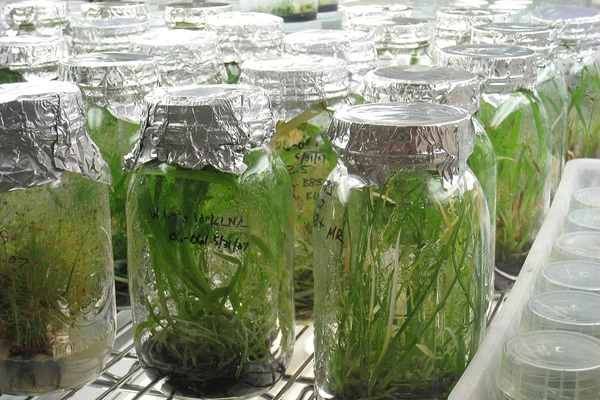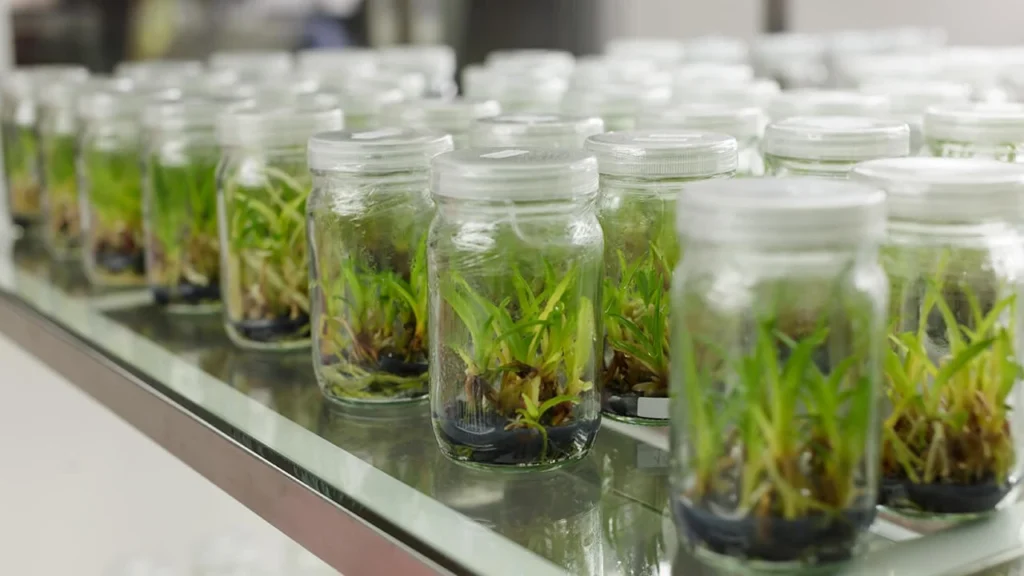Delhi’s forest and wildlife department is establishing a tissue culture lab at the Asola Bhatti Wildlife Sanctuary to propagate threatened or rare native Delhi trees.
- The department has identified around 10 such species: hingot, khair, bistendu, siris, palash, chamrod, doodhi, dhau, desi babool, and kulu.
What is Plant tissue culture (PTC)?
- PTC refers to the cultivation of undifferentiated plant cells, tissues or organs on synthetic media under aseptic environment and suitable controlled physical conditions.
- Also known as micro-propogation, it allows multiple plants to be produced from a parent plant using in-vitro tissue, which is incubated under a controlled environment.
- Through this technique, new saplings will become clones of the parent plant.
- Plant tissue culture is based upon the unique characteristic of a plant cell i.e., totipotency.
- Totipotency is the ability of a vegetative cell to divide and differentiate into any type of specialised cell or to regenerate into a whole plant.
Types:
- Organ culture: In organ culture, any part of the plant (root, stem, leaf, and flower) is used as an explant for culturing purposes.
- Embryo culture: It is a technique in which isolated embryos from immature ovules or seeds are cultured in vitro.
- Seed culture: In seed culture, the explants are obtained from the plants that are already cultured and grown under in vitro conditions.
Applications of plant tissue culture:
- To conserve rare or endangered plant species.
- Plant breeders can employ tissue culture to screen cells rather than whole plants for desirable traits, such as herbicide resistance or tolerance.
- Tissue culture is also used for obtaining disease-free plants and achieving rapid multiplication of plants.
- It facilitates large-scale production of artificial seeds.
Challenges:
- Challenges associated with Plant Tissue Culture include inadequate infrastructure, shortage of skilled manpower, and limited scientific knowledge about biotechnological principles.
Other key facts:
- Tissue culture laboratory at the Asola Bhatti Wildlife Sanctuary will target a majority of native Aravalli or ridge species that are facing regeneration challenges and have a poor survival rate due to the invasive vilayati kikar.
- Vilayati kikar does not allow other saplings to propagate easily.
- If successfully established, this will be the first plant tissue culture laboratory under the Delhi forest department, though such projects have been carried out across the country, including Delhi, in the past.
- In fact, the National Facility for Plant Tissue Culture Repository (NFPTCR) was established at the National Bureau of Plant Genetic Resources (NBPGR) in Delhi in 1986.
Ref:Source
| UPSC IAS Preparation Resources | |
| Current Affairs Analysis | Topperspedia |
| GS Shots | Simply Explained |
| Daily Flash Cards | Daily Quiz |
Frequently Asked Questions (FAQs):
What is plant tissue culture (PTC)?
Plant tissue culture (PTC) refers to the cultivation of undifferentiated plant cells, tissues, or organs on synthetic media under aseptic environment and suitable controlled physical conditions.
Which species are targeted by the new tissue culture lab at Asola Bhatti Wildlife Sanctuary?
The lab targets around 10 species: hingot, khair, bistendu, siris, palash, chamrod, doodhi, dhau, desi babool, and kulu.
What is totipotency in the context of plant tissue culture?
Totipotency is the ability of a vegetative cell to divide and differentiate into any type of specialised cell or to regenerate into a whole plant.
What are the applications of plant tissue culture?
Applications include conserving rare or endangered species, screening for desirable traits, obtaining disease-free plants, and achieving rapid multiplication of plants.
What challenges are associated with plant tissue culture?
Challenges include inadequate infrastructure, shortage of skilled manpower, and limited scientific knowledge about biotechnological principles.



